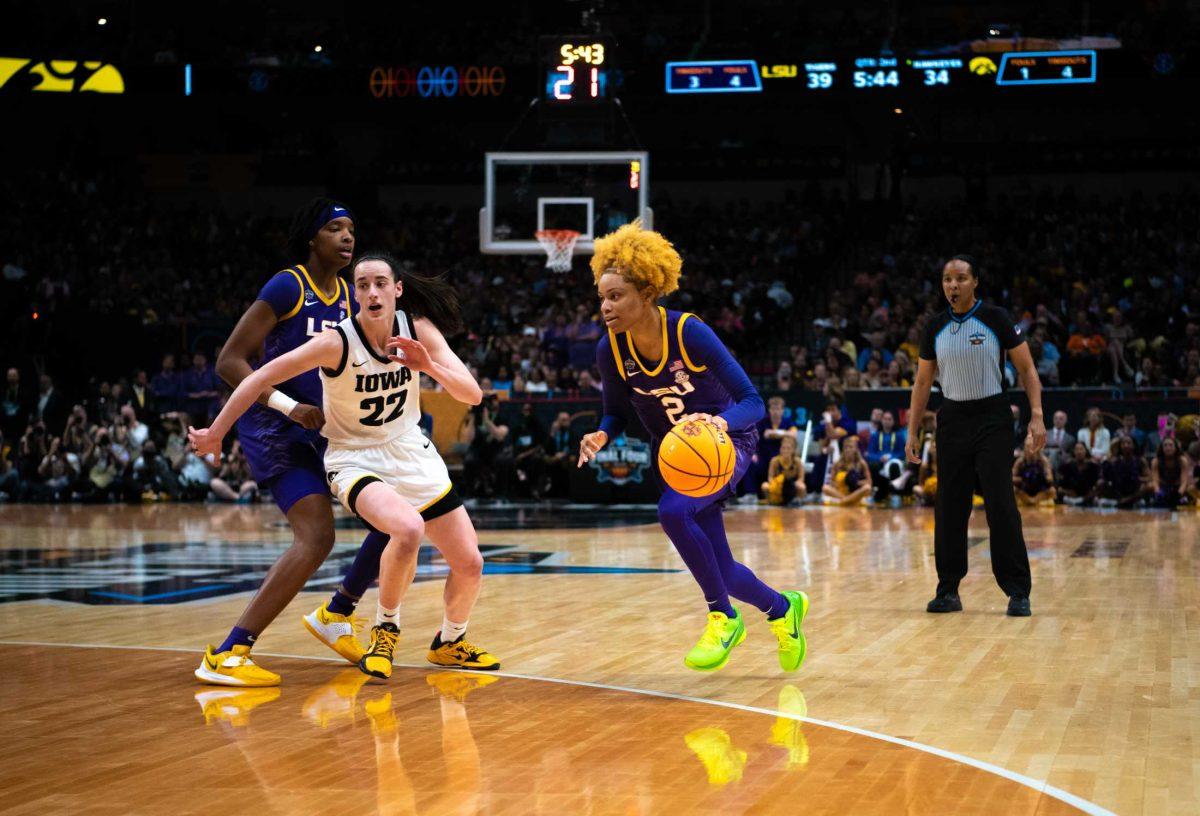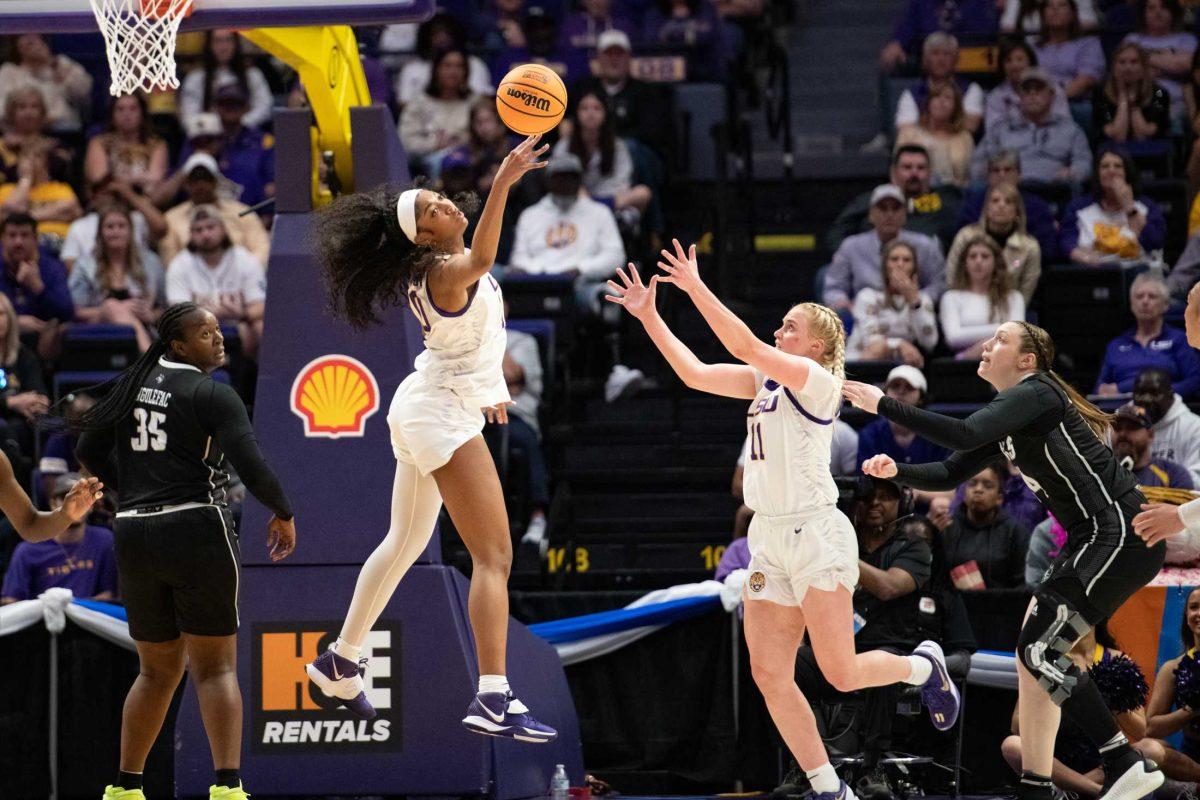Big time players make big time plays in big time games.
That phrase is used almost ad nauseam when talking about big performances in championship games. But sometimes, it’s the players not often in the spotlight that make the difference.
That was the case for LSU on Sunday.
Jasmine Carson, who hadn’t scored a point since the second round of the tournament, was that player for LSU.
She scored 22 points, 21 of which coming in the first half. That performance led LSU to a 17-point lead and 59 first half points, the most in national championship history.
Though she only scored one point the rest of the game, her impact was the driving force of LSU having one of its best offensive games of the season.
Coming into this game, LSU had been struggling from the perimeter. The Tigers made just 14 three-pointers all tournament to that point but made 11 in the championship game.
Carson had five of those makes.
“I wanted to do anything that my team needed in this game,” Carson said. “Whether it was defense, rebounding, just anything supporting them.”
To say Carson merely supported her team in the win is an understatement. Twenty-two was her second-highest point total of the season, and she picked the best possible time to have one of the best games of her career.
Carson’s role this season has fluctuated, along with her success. She spent most of the earlier part of the season as a starter, but her minutes went down in the postseason.
“Jasmine wasn’t benched for any reason other than I needed bigger bodies for some of the teams we played in the playoffs,” Mulkey said. “Jasmine may be the second-best pure shooter that I’ve ever coached in my career. She can just light it up.”
She averaged just 10.8 minutes per game in the NCAA Tournament leading up to the national championship. With that came lesser numbers, only reaching double figures in one game during March Madness.
Given LSU’s recent run, though, many called for efficient three-point shooting being key for LSU. The Tigers had been dominant on defense and on the glass but were struggling to hit that final gear from the perimeter.
Against Iowa, the biggest key was keeping up with Iowa’s high-scoring offense. Iowa made 14 three-pointers in the game, but even still, that wasn’t enough to keep up with LSU.
LSU’s 102 points set a national championship game record. Carson added 22 of those and also helped LSU gain momentum as a team from three-point range.
The Tigers shot a scoring 9 of 12 from beyond the arc in the first half, which set the tone for an offense that continued to build confidence.
That confidence and momentum never ceased, and ultimately led to LSU’s first national championship in school history.
And for Carson, a two-time transfer, she experienced the moment most players merely dream of. She holds the claim of a national championship standout and unlikely hero on the biggest stage in the sport.
“It was a surreal moment, every player dreams of being on the big stage like this and having the game of your life,” Carson said. “I was just living in the moment.”









